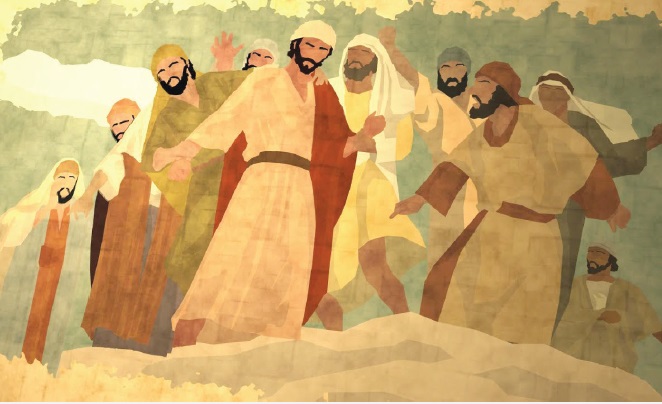A prophet of the 21st century
Reflecting on our Sunday Readings with Sr Shanti Mariadass, FDCC
Jul 05, 2024

14th Sunday in Ordinary Time (B)
Readings: Ezekiel 2: 2-5;
2 Corinthians 12: 7-10;
Gospel: Mark 6: 1-6
Who is a prophet today?
In the vast expanse of human history, the role of the prophet has transcended epochs, woven into the very fabric of civilisations. Across ancient Jewish realms, those deemed worthy were entrusted with divine communication, bearing the sacred mantle to articulate God’s message and enact His will. Yet, to perceive a prophet merely as a harbinger of future events would be to overlook the profound essence encapsulated by the Greek term “prophetes” - one who speaks on behalf of another.
A prophet is a person who LISTENS and then SPEAKS.
Today, amidst the complexities of our modern era, the notion of prophecy finds resonance in the call for attentive listening and articulate expression. Pope Francis, in his profound wisdom, illuminates this path, urging Christians to embrace their prophetic calling, not as fortune-tellers, but as beacons guiding others to discern the Holy Spirit’s presence in the tapestry of daily existence. For it is the prophet who, in the words of Mark Twain, grapples with the enigmatic task of prophesying, especially concerning the future, mirroring the challenges encountered by biblical prophets like Ezekiel.
Ezekiel, a towering figure in prophetic history, exemplifies unwavering fidelity to proclaiming God’s message, regardless of its reception. His steadfast commitment beckons us to heed the clarion call of our own baptismal vocation, to stand tall and listen intently, to confront our societal “rebels” with the unwavering truth of the Gospel, to embrace the arduousness of our mission with humility and fortitude.
The journey of prophecy demands not personal ambition, but a surrender to the divine Word, shaped by the sacred scriptures and the luminous examples of saints. Are we prepared to heed this call?
How do we proclaim Gods word in a wounded, brittle and anxious world?
1. Stand up - Attentively listen to God. It’s not about YOU, it’s about GOD. The posture of standing up is an important element in being a prophet. He/she is constantly on the move.
2. Face our rebels. Who are our rebels? Our own people … our own selves …as Ezekiel was sent to the Israelite’s, we are sent to our own people who have HEARD it but REBELLED. This is basic secularism - turning away from the Gospel.
3. Be ready. The mission is not easy. Just like St Paul’s thorn in the flesh. It’s a metaphor for Paul’s opponents; suffering he experienced from his opponents who questioned and criticised him. The pain is constant. St John Chrysostom – the thorn is the suffering from different opponents.
4. It’s not your idea. It’s God’s Word. So what shapes our speech, it’s the Bible, the doctrines and saints that shapes our speeches.
5. We are not called to be successful but to be faithful. As St Mother Teresa aptly reminds us, success is not our pursuit, but rather faithfulness to the divine call.
In the same breath, we encounter Paul, a very interesting character, he boasts in his weakness and not in his power. Paul emerges as a paradoxical testament to the power found in weakness.
And yet, amidst the tapestry of prophetic legacy, it is Jesus who stands as the epitome of prophecy incarnate, the ultimate mouthpiece of divine revelation. As we journey towards the Jubilee year, the clarion call to reclaim our prophetic identity resonates deeply.
As baptised Catholics, we are called not merely to bear witness, but to embody the prophetic legacy of Christ Himself, to herald the Good News in a world yearning for healing and redemption. Indeed, who shall proclaim this message, if not us?







Total Comments:0